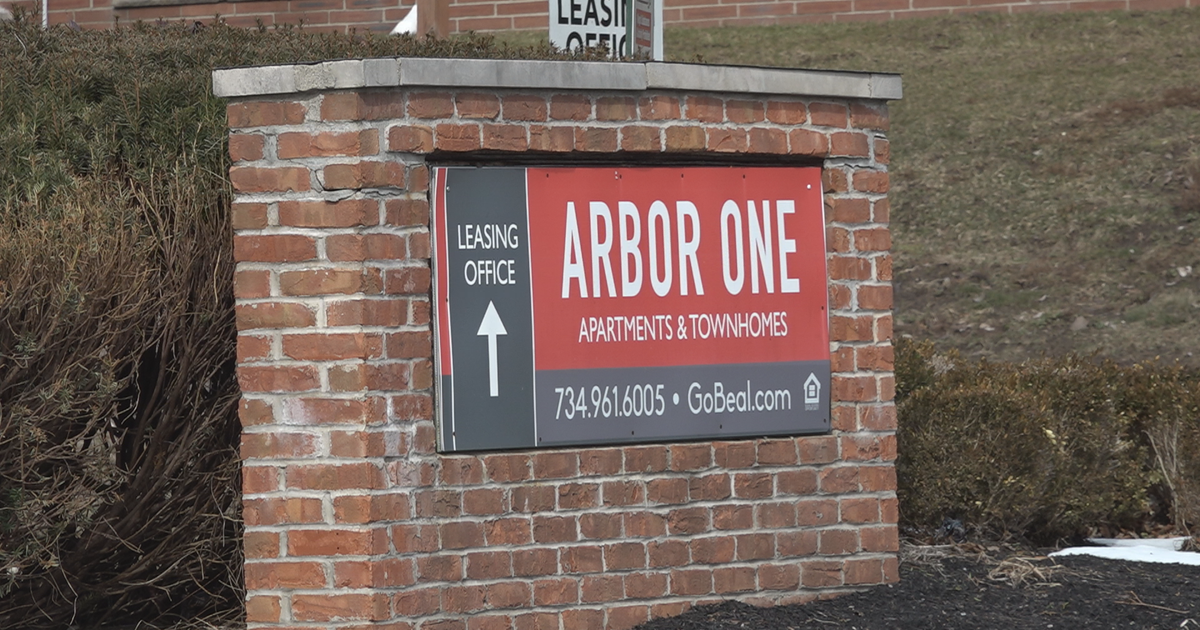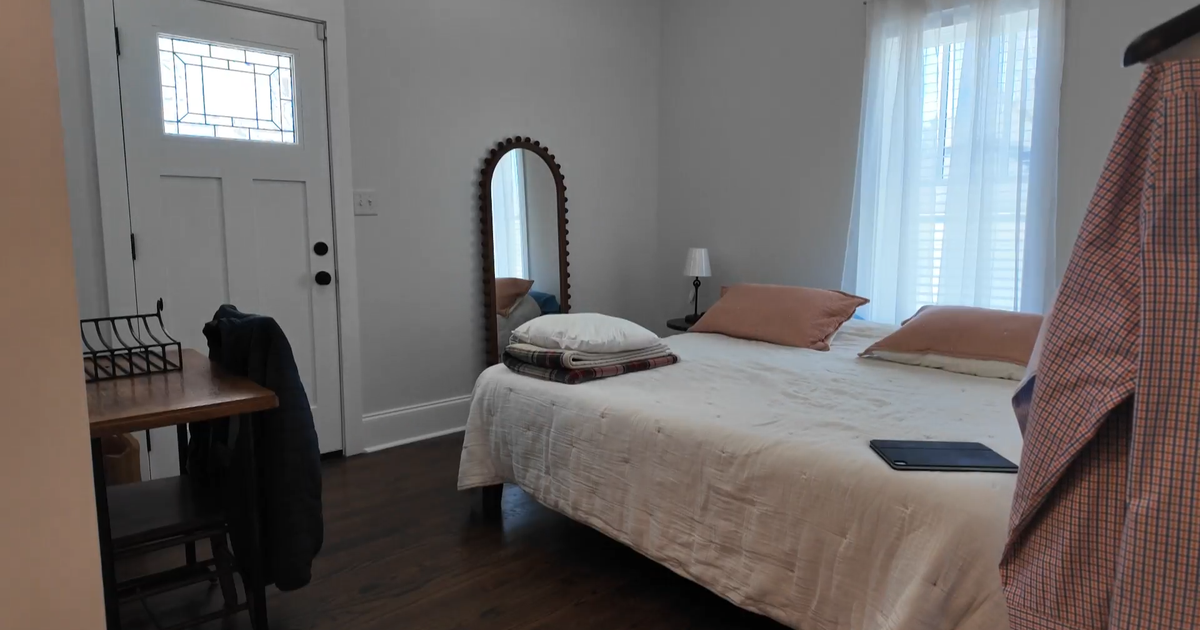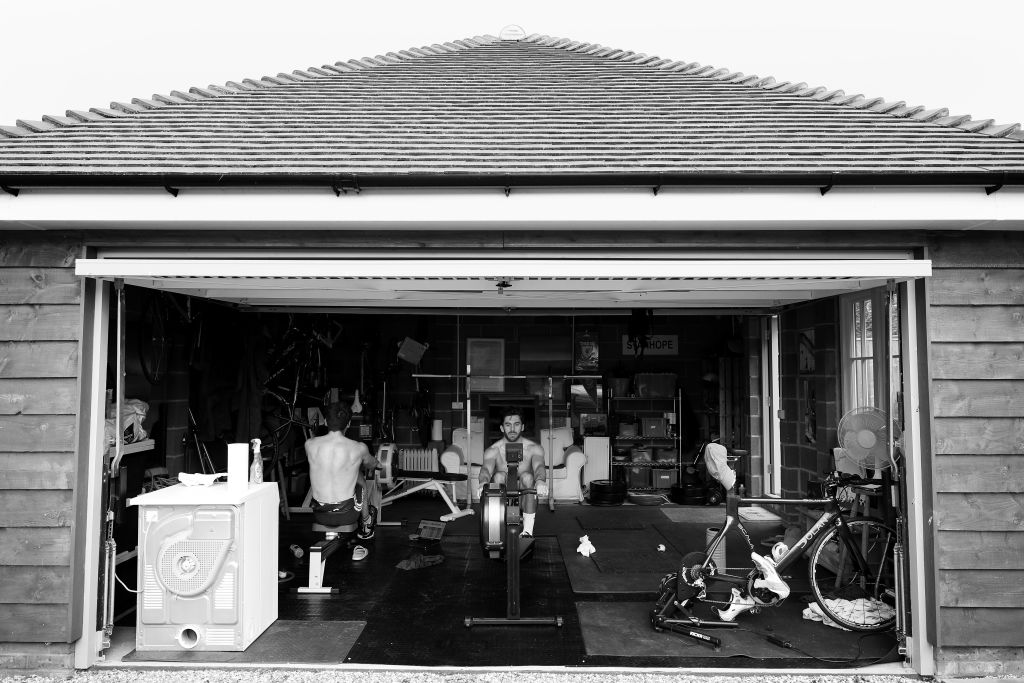Congress approved billions for Americans behind on rent. The race is on to make sure it reaches them before the eviction moratorium ends.
Amy Cousino had moved to New Orleans to be a chef — but when the COVID-19 pandemic struck last March, her job vanished. Underlying health issues cut her off further from the outside world. On unemployment for the first time in her life, she had to pick and choose which bills to pay, while asking for help to put food on the table. She's struggled to pay rent on her small apartment since last summer. And her landlord already tried to evict her once, despite a federal eviction moratorium.
"If I get evicted, I have no place to go. I will literally be on the street with my dog," Cousino said. She's only been able to navigate the dire situation after being approached by Legal Aid. They were able to keep her in her home. Now Cousino is waiting to find out if she will be granted federal aid to pay her back rent and keep her from homelessness.
With millions of Americans out of work due to the pandemic, the eviction moratorium helped keep people in their homes — but it also put a squeeze on landlords. To help, between the December and March COVID relief packages, Congress approved more than $46 billion in rental assistance. Exact amounts renters and landlords can receive depend on their income and where they live, but renters could get enough to cover rent from as far back as March 13, 2020, unpaid utilities and even, in some cases, future rent.
But by the end of May, only $1.5 billion had gone out. And officials are racing against the clock: The federal eviction moratorium ends July 31.
"If the federal eviction moratorium expires and this rental assistance doesn't reach tenants in time, we will be looking at a historic wave of families losing their homes this summer and fall with all the long-term consequences and long-term harm that that does to families and communities and the country," said Diane Yentel, president and CEO of the National Low Income Housing Coalition.
An estimated 11.5 million adults living in rental housing are behind on rent, according to an analysis of June U.S. census survey data by the Center on Budget and Policy Priorities. The analysis found 1 in 5 renters with children are behind, and renters of color face the greatest hardship.
The problem isn't the money — it's getting it to people. States and local governments are in charge of distribution, but many didn't have a way for people to apply or to get them funds. Twenty-two states and 104 cities and counties had spent 1% or less of their allocation by the end of May, the National Low Income Housing Coalition found.
"While we have substantial funds through the American Rescue Plan, we as a nation have never had a national infrastructure to prevent unnecessary evictions," White House American Rescue Plan Coordinator Gene Sperling said recently during an eviction prevention summit.
While there had been some state and local rental assistance programs, the scale of this program was beyond what they'd handled, a Treasury official said. State and local entities had to build IT systems and hire staff. Some programs did not even open until May or June — but since opening, a Treasury spokesperson said, there has been an exponential increase in renters getting money. Landlords and renters can apply directly for funds through their states, counties and in some cases tribal authorities depending on where they live.
Texas went from distributing nearly $140 million through the end of May to more than $538 million by mid-July after smoothing out growing pains in a new system, including having to replace their software mid-March. A high point has been moving roughly $17 million in one day, a Texas housing official said.
Illinois had not distributed any of its federal emergency rental assistance funds by the end of May. But by mid-July, it had distributed more than $129 million, 22% of its available funds. Residents can apply for $500 million in funding through Sunday. Another round will be available this fall.
Officials in Virginia, however, started building the state's program a year ago, allocating $50 million for housing assistance. It took them six months to move that money, but they've been able to use their own program to distribute more than $220 million in federal funds since early February. Other states have even reached out for input with their own programs, an official said.
Housing officials believe distributions will increase. In July, state programs are expected to pay 200,000 renters more than $1 billion in assistance, the National Council of State Housing Agencies projects, which does not include local spending. The organization expects the pace of state programs will continue to increase through the summer.
But some renters are hesitant to participate, even though evictions can affect whether they can get a job or stay in school, hurt credit scores, get them turned down for future rentals and take a toll on their mental and physical health.
"Tenants are hesitant to apply because they think it's too good to be true," one Virginia official told CBS News. Officials across the country are reaching out to people to explain what it is: a grant, not a loan. Wyoming, for example, sent a postcard about the program to every household in the state this week.
Officials haven't just been trying to get people money. They've also been partnering with courts, community organizers and legal groups on other diversion programs to keep people from homelessness after months of struggling in the pandemic.
"Having millions of families lose their homes would be tragic under any circumstances, but especially so when it's entirely avoidable with abundant resources that have yet to reach them," Yentel said.



